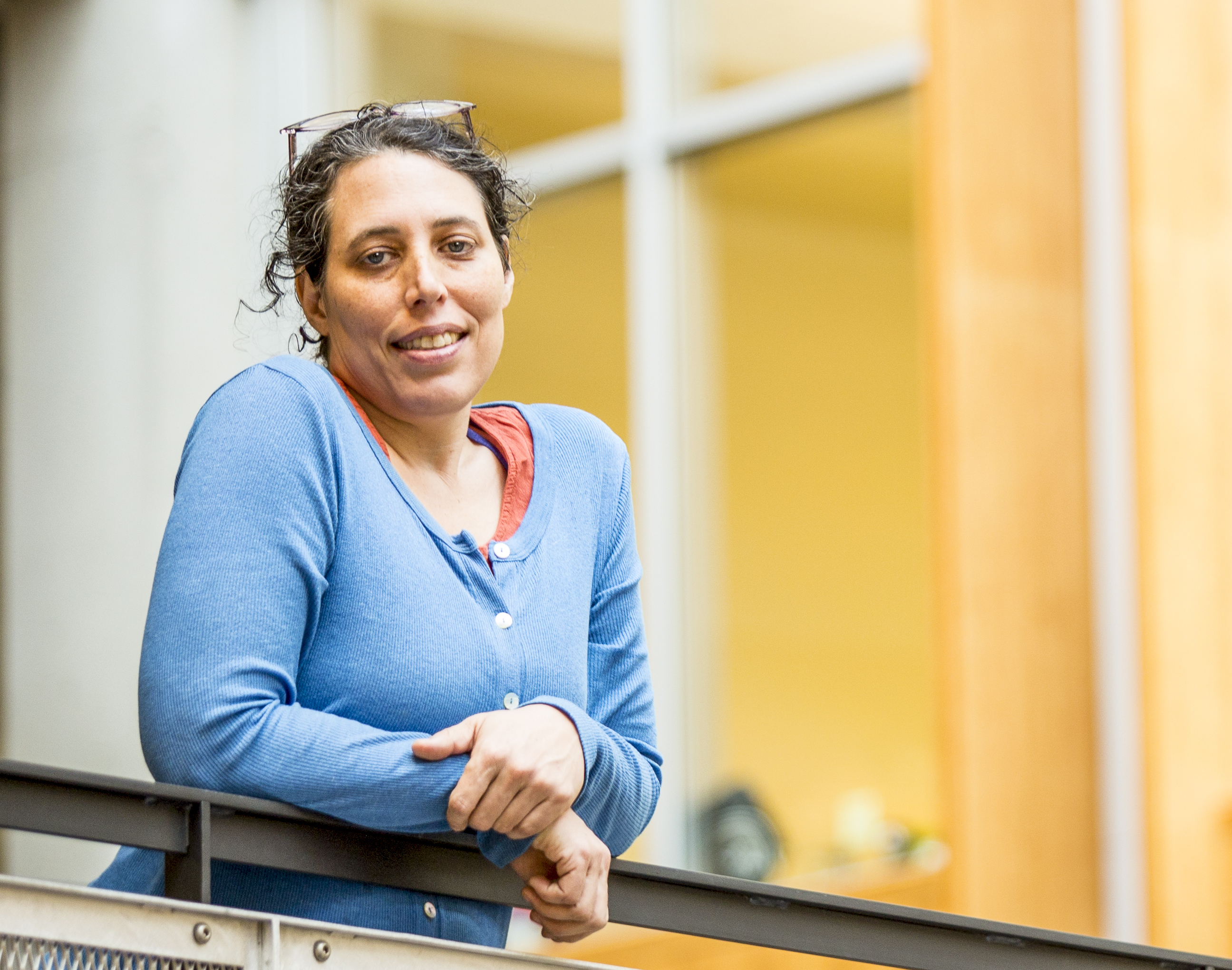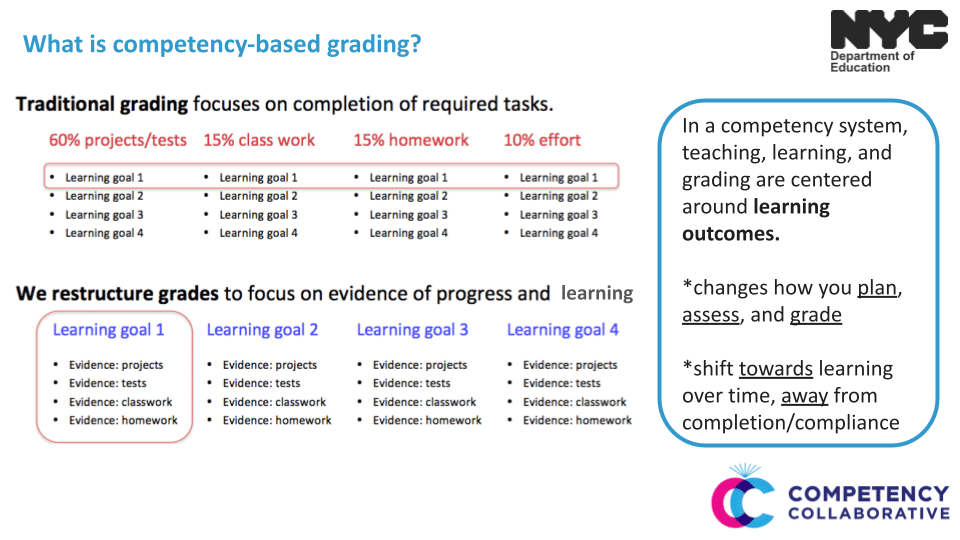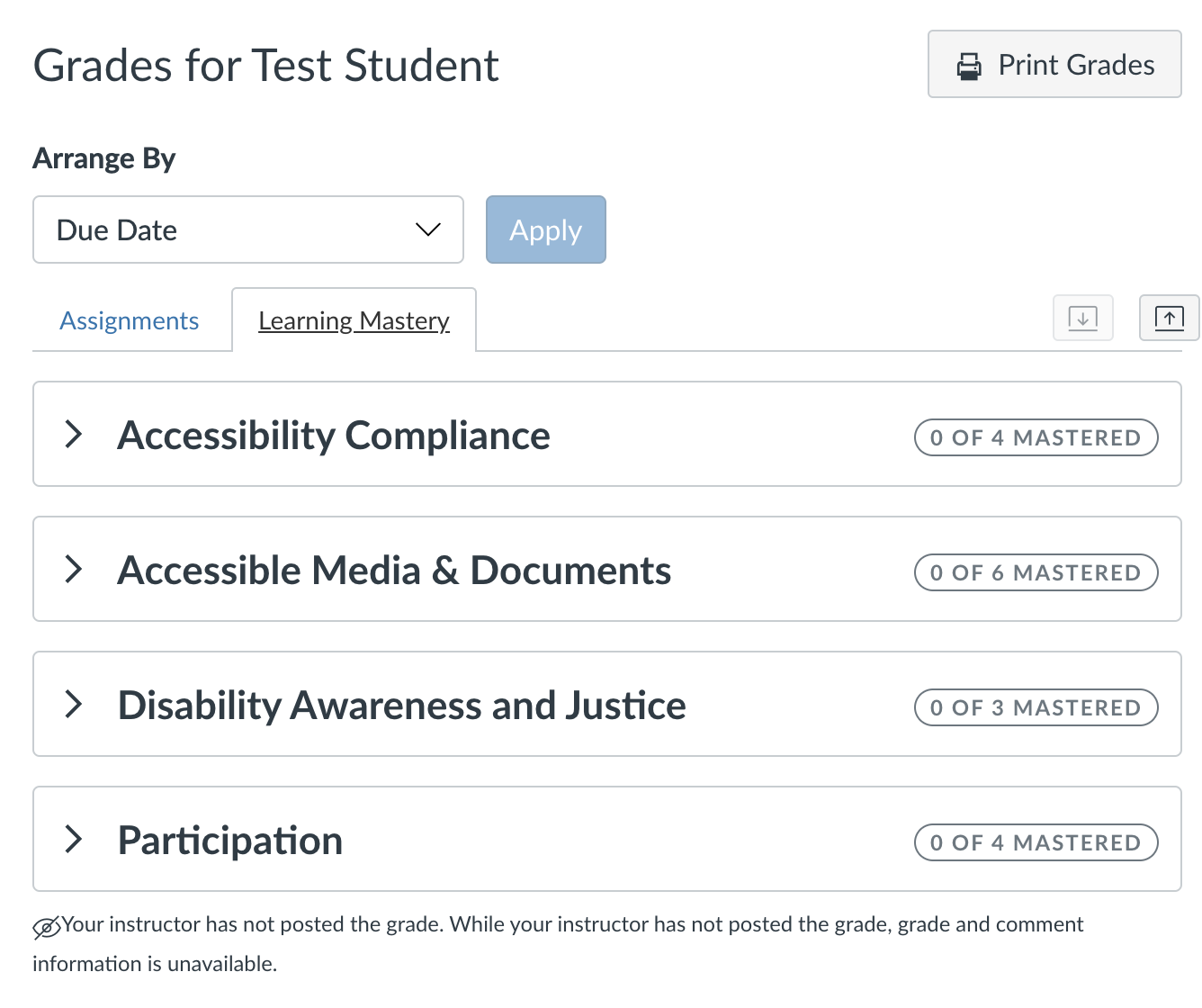- Why take this class?
- Logistics
- How is COVID safety handled in this class?
- Is this class Accessible and Inclusive?
- Expectations and Grading
Why take this class?
What it is about?
Highly recommend this course to be [mandatory in CS]… I will keep the lessons learned and try to apply them in my career wherever applicable. – 2023 student.
Even though I have a lot of experience with implementing accessibility in code and pushing for more accessible designs at work, I have learned a lot from this course [that I plan to take back into my workplace] – 2023 student
How can computing enable new solutions to accessibility, including both access to the world and access to computers? Similarly, how can a disability studies perspective guide us in developing empowering and relevant solutions to accessibility problems? This course explores both of those questions through a combination of discussions, reading, and building. In addition, by studying access technology, we can gain valuable insights into the future of all user interface technology.
Access technology (AT) has the potential to increase autonomy, and improve millions of people’s ability to live independently. In addition, accessibility is a human rights issue and it is the law. If you’re creating interactive technologies, you should know how to build regular interfaces that are accessible as well as understanding the value of innovating new approaches to accessibility. Disability touches almost everyone either directly or indirectly at some point in life, temporarily or permanently. Let’s create a future we will also want to and be able to be part of.
In this course we will focus on a combination of practical skills such as how to assess accessibility of documents, websites and apps and how to do disability based UX; advanced skills such as how to address accessibility in visualization, AR/VR and AI/ML; and forward looking topics such as intersectional concerns, accessible healthcare, and accessibility in disaster response. The largest project in the class will be an open ended opportunity to explore access technology in more depth. We will also cover disability justice and advocacy.
What are the Prerequisites and Expectations?
The only requirement for this class is that you are comfortable programming and picking up new languages and tools that you have not been exposed to before. You will have some control over this, however, basic web skills are likely to be useful. The primary programming project in this class is one you design yourself.
In addition, please familiarize yourself with the course academic conduct policy. We will grade on the assumption that you have read and understood it, and there will be penalties if you do not follow these policies. These will be determined on a case by case basis, but at a minimum:
- If you plagiarize you will receive a 0 on participation for that assignment
- If you plagiarize on any assignment, you will receive a non-competent on your disability justice competency
What is the Teaching Philosophy and Approach?
Many of the goals in this class center around learning by doing. This means that hands on time trying out everything from implementation to evaluation is critical to learning. Active learning has been shown to increase student performance in STEM subjects.
Thus, class time will be used as much as possible for in class exercises and discussion for understanding using a variety of technologies. We also highly encourage questions in lecture. Often many students share the same question and those questions can help the instructor gauge student understanding.
Preparation outside of class and participation in class are both very important and will improve your class experience. Preparation may include online discussion, pre-class readings and videos, and post-lecture reflections in addition to homework. Participation in class will include discussion, question asking, and active engagement in learning exercises.
Logistics
When and Where is the Class Held?
See Canvas for all zoom meeting links for classes and office hours.
How do I reach the Instructors?
 |
Jennifer Mankoff (she/her) | Instructor |
 |
Venkatesh Potluri (he/him) | TA |
 |
Jesse Martinez (he/him) | TA |
 |
Dhruv Khanna (he/him) | Course Assistant |
Office Hours
| Day | Time | Who | Where |
| Tuesdays | 3-4pm | Jen Mankoff | Canvas |
| Wednesdays | 11:30-12pm | Jen Mankoff | 211 Gates |
| Mondays | 10:30-11:30AM | Venkatesh Potluri | in-person location Bill and Melinda Gates Center 121. zoom link |
| Fridays | 1:30-2:30pm | Jesse Martinez | Gates 131 |
| Asynchronous | Any | Post to discussion board* | |
| By Appointment | Any | Post to discussion board |
*You can discuss matters with us privately on the discussion board. This notifies the whole course staff at once and is usually faster than email.
Staff mailing list: Mail
How do I reach other students in the class?
We have a class discussion board, where you can make public posts that benefit the whole class, and are answered more quickly because your fellow students can help the course staff by responding also.
- This is the best way to ask questions about things like homework and programming
- Before posting, please search through the questions that have already been posted in case someone has already asked the same question.
Another great way to meet students is to come to class in person!
How is COVID safety handled in this class?
All policies below are designed to match guidance from the University of Washington. It is possible for guidance to change as the pandemic evolves over the coming months, so we will update this page as rules/regulations change. Much of this text was copied and modified with permission from CSE 163 and CSE 340.
Why are masks passed around in class?
Masking is currently optional, but ``strongly recommended indoors’’ according to the UW face covering policy.
In this class, people in the room include those who are high risk with respect to COVID and people who live with vulnerable family members. To help support the needs of these individuals, masks will be available in the classroom as you enter, and if you would like to mask, you are welcome to make use of them.
When masking, UW’s masking policy states
University strongly recommends wearing a well-fitted, high-quality mask indoors (e.g., KN95, N95, KF94 and surgical masks) to reduce the potential for transmission. High-quality masks are available at no cost in several locations on each campus. University units can purchase high-quality facemasks from the Safe and Clean Storefront.
When should I attend remotely?
If you are sick or have potentially been exposed to COVID-19, stay home. We will not be assessing you on attendance, so you will not be penalized for missing class to keep our community safe. See more here.
Below, we briefly describe the accommodations for students having to miss class due to potential illness, with full information in the linked pages.
- Lectures: Course content will be posted as a set of readings/videos that can be watch asynchronously. Recordings of the live class posted on course website, and all materials posted online.
- Office Hours: We will host remote office hours. Please contact the course staff on the discussion board if none of the times/locations work for you.
- Asynchronous help is available via the Discussion Board, post online to get asynchronous help from a member of the course staff.
Do I need to maintain social distancing?
Vaccinations and masking provide strong protection against the spread of COVID. Currently, UW does not require social distancing in the classroom or office hours for students who are vaccinated and wearing a mask.
Of course, some students might feel more comfortable keeping a little distance. If you would like to keep space between you and another student, please kindly ask them to leave a space between you and them if there is room available. Similarly, if someone asks you to maintain a space between them, please respect that request if possible.
What if I get sick?
See this FAQ by UW on what you should do if you get sick. You should also check out the Remote Access options listed above!
What if I am potentially exposed to COVID-19?
Follow the recommendations outlined in this flowchart by EH&S.
What if Jen or a TA gets sick?
The course staff is committed to keeping you safe, so we will not make you risk a potential exposure to COVID to attend class. If one of the course staff feels ill, we will move any in-person activities we are hosting to be purely online or have someone else on the course staff fill in for us while we are potentially contagious.
Please make sure you check your email frequently for announcements from the discussion board and before you attend an in-person event to make sure it is still happening in-person. We will always try our best to give as advanced notice as possible for any changes from in-person to remote for a day.
Is this class Accessible and Inclusive?
We hope so! The class is a shared learning environment and it is important to us to make it a welcoming environment for everyone, from all backgrounds. We strive to treat everyone in the class with respect and understanding.
How does this class support Accessibility?
We know that students in this class may need materials to be accessible by screen reader, or may need extra time on exams. We have structured the class to be as accessible as possible to all students by default.
If you have a temporary health condition or permanent disability (either mental health, learning, or physical health related) that impacts your academic experience, please let us know how we can accommodate you.
You are NOT obligated to disclose any of these issues with the instructor, only specify if there’s any accommodations required. For more on accessibility in this class and how we accommodate you (and each other), please see our Accessibility Policy
What about health and wellness beyond accessibility accommodations?
It is very important to us that you take care of your mental health throughout the course. We have built flexibility into course assessments with the goal of reducing stress. However we know that sometimes that is not enough. Everyone on the course staff is available to chat, and you can always attend office hours for a non-academic conversation if necessary. Beyond the course staff, the University of Washington provides the following resources for mental health concerns. Your anonymity and privacy are protected.
- Please reach out to the UW Counseling Center for any help and concerns related to mental health (including increased stress), available to all UW students at no cost.
- If you are ever feeling uncomfortable and need to talk or are worried about someone close to you, it is highly recommended to visit the UW Heath and Wellness programs. They offer resources to students that can help.
- If you’re concerned for yourself or a friend, please call SafeCampus at (206) 685-7233.
How do you accommodate religious holidays?
You may observe religious holidays that overlap class times. We ask that you complete the class attendance requirements for remote students in this case. If you have additional concerns that this policy does not meet, please contact the instructors. In addition, here is some potentially helpful information about UW policy: Religious Accommodations Policy. Accommodation can be requested within the first two weeks of this course using the Religious Accommodations Request form on UW’s site.
What should I do if something happens that makes me feel unsafe or excluded?
If you have been subject to sexual harassment, you feel you have been discriminated against, our you have been made to feel uncomfortable in any way, please tell us. You might choose to speak with your instructor, teaching assistant, the chair of the department, depending on the circumstances.
Should you feel uncomfortable bringing up an issue with a staff member directly, , there are a number of Community Feedback Mechanisms and Resources including the Anonymous Feedback form, but understand we can not respond to you directly if you use the latter. Responses, if possible, will be broadcast to the class as a whole or systematic changes to the class when necessary.
You can also file a complaint with the UW Ombudsman’s Office for Sexual Harassment. Their office is located at 339 HUB, (206)543-6028. There is a second office, the University Complaint Investigation and Resolution Office, who also investigate complaints. The UCIRO is located at 22 Gerberding Hall.
If something about the course materials makes you feel excluded, please let us know. We also review them ourselves with inclusion in mind each time we prepare to teach.
We have tried to make the course inclusive of people who have work, childcare or appointments that have to be prioritized at specific times. However if we can do something to improve this further, or you have needs we haven’t thought of, please tell us.
Expectations and Grading
What are the participation requirements for this class?
This is an in person class. As much as possible, we ask that you attend in person. That said, we know that many individual concerns may make this a barrier. We will do our best to support remote participation when there is a need for this due to a family obligation, disability, or other concern.
If you participate remotely, or miss a class, you may be asked to engage in additional work before, after, or during lecture to ensure that you have the most similar experience possible to students who are in person.
Will lectures be recorded?
Class sessions will be recorded when possible (guest lecturers may refuse this). Recordings will only be accessible to students enrolled in the course to review materials.
The University and Zoom have FERPA-compliant agreements in place to protect the security and privacy of UW Zoom accounts.
What if I don’t want to be recorded?
Students who connect by Zoom but do not wish to be recorded should:
- Change their Zoom screen name to a school appropriate screen name that hides any personal identifying information such as their name or UW Net ID
- Not share their computer audio or video during their Zoom sessions (please notify us first!).
What is the classes Grading Philosophy?
While grading is a necessary part of what we do at UW, I want to focus this class on learning; and to ensure that my approach to assessment is inclusive and focuses on a justice based approach. There has been a lot of innovation in assessment in recent years, driven partly by COVID-19. We have tried to learn from this in our grading.
There will not be quizzes, or a midterm or final exam. Instead, your knowledge will be assessed Competency based grading in alignment with the disability justice focus in this course.
What is “Competency Based Grading”?
Competency based grading separates out how you learn a skill from whether you know it. Many of these competencies are assessed repeatedly. I don’t care if you get them wrong at first, as long as you eventually learn them. If you learn them all, and participate fully in the class, you will get an A.
In the image below, you can see how traditional grading assigns a score for each assignment and adds them together. If you score badly on your first assignment, that negatively affects your grade, even if you demonstrate that you’ve learned everything you needed to know in it during later assignments. In contrast competency-based grading is structured around learning goals. All of the different things you do that demonstrate progress on those learning goals are grouped together to help assign a score on that learning goal.

Nice philosophy and all… what does that mean for me?
The competencies needed for this course are listed on the assignments page, and can all be found in canvas as well. There are three categories of Competency, each with four skills you need to learn: (1) Accessible Media and Documents (2) Accessibility Compliance and (3) Disability Awareness and Justice.
Your highest score on each skill in any assignment determines your grade on that skill. In addition, you may request regrades. When you are graded on a skill, we rate your skill as “no evidence” “below competent” “basic knowledge” or “excellent”. Various combinations of “basic” “excellent” and “below competent” result in other grades.
The table below shows how scores will be converted to a grade. Note that if even 1 skill in a competency category is below competence (!Comp), the highest possible grade is 75% in that competency category. Assuming that you are at least competent in all skills, your grade is based on how many skills are excellent versus competent. You have to be excellent in all 4 skills to get to 100; at least 3 to get to 95%; and at least 2 to get to 85%. Your final score on your competencies is an average of your competence in each category.

| Outcome Category | Score | 100% | 95% | 85% | 80% | 75% | TBD | |
|---|---|---|---|---|---|---|---|---|
| Media/Docs | !Comp | <= | 0 | 0 | 0 | 1 | 2 or more | |
| (All = 5) | Excellent | >= | 4/4 | 3/4 | 2/4 | 1/4 | ||
| Compliance | !Comp | <= | 0 | 0 | 0 | 1 | 2 or more | |
| (All = 5) | Excellent | >= | 4/4 | 3/4 | 2/4 | 1/4 | ||
| Justice | !Comp | <= | 0 | 0 | 0 | 1 | 2 or more | |
| (All = 5) | Excellent | >= | 4/4 | 3/4 | 2/4 | 1/4 |
You can view your progress on each competency in Canvas (Excellent is called “Mastery” there). Open up the category to see individual competencies; and click on the competency to see details on whether you are “competent” or “excellent”.
What else will I be graded on?
Grades will be assigned in three categories: Assignment completion, effort, and competencies.
80%: Competencies
Competencies are 80% of your grade in the class. See the previous question for details on how a grade is calculated from your competencies.
10%: Assignment Completion
Assignment completion is 10% of your grade. This is listed as the “participation” competency for each assignment in canvas. The weight of each assignment is simply the number of weeks long it is, so a longer assignment would contribute more to your assignment completion grade than a shorter one.
10%: Effort
Your effort grade will reflect your participation in the class across multiple dimensions such as whether you participated in discussions and exercises in class (self reported) and whether you participated in discussions outside of class (based on your submissions).
Does the class have a regrading policy?
Reflecting on feedback is one of the most valuable ways you can learn from your mistakes, and we encourage you to do so. It is also possible for the graders to make mistakes. If that happens we certainly would like to correct the error.
However, please note the following:
- Because this class is competency based, you don’t necessarily need a regrade, you just need to show that you have learned this competency in this OR a future assignment. Most competencies show up in more than one place
- When you request a regrade, we may look at the entire assessment, homework or reflection. Therefore, it is possible for to lose a competency as well as gain one in this process.
If you have a question about a grade you received or if you feel the grade you received is incorrect, please email an instructor for an appointment to discuss the assignment and your grade in detail.